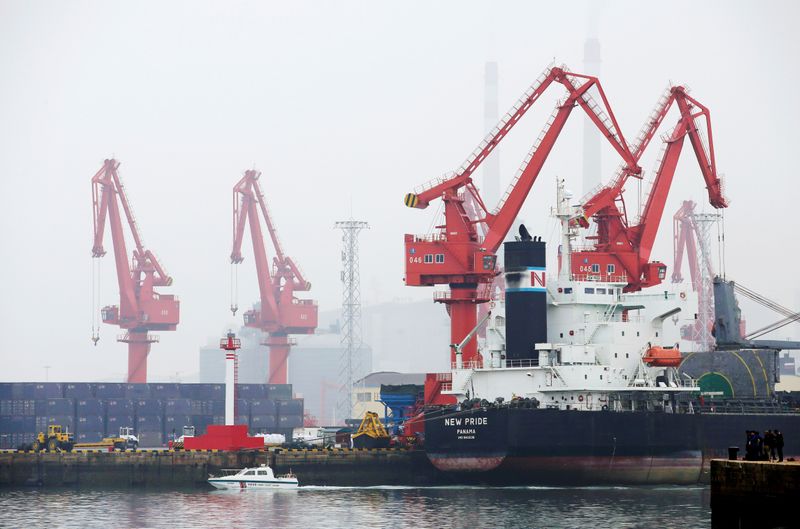Oil rises as demand outlook improves, U.S. inventories fall

© Reuters. FILE PHOTO: A crude oil tanker is seen at Qingdao Port, Shandong province, China, April 21, 2019. REUTERS/Jason Lee/File Photo
By Aaron Sheldrick
TOKYO (Reuters) -Oil prices gained on Wednesday, with Brent rising for a fifth consecutive session as sentiment rose on the back of falling inventories and a recovery in demand after the pandemic.
Brent crude was up 47 cents, or 0.6%, at $74.46 a barrel by 0700 GMT, the highest since April 2019.
U.S. crude gained 42 cents, or 0.6%, to $72.54 a barrel, the highest since October 2018.
“Even non-energy traders are placing bets that oil prices will continue to rise,” said Edward Moya, senior market analyst at OANDA.
“Everyone is turning overly bullish with crude prices. The crude demand outlook is very robust as recoveries across the U.S., Europe and Asia, will have demand return to pre-COVID levels in the second half of next year,” Moya said.
U.S. oil inventories dropped by 8.5 million barrels in the week ended June 11, according to two market sources, citing American Petroleum Institute figures on Tuesday. [API/S]
Crude stocks were expected to have fallen for a fourth week in a row, dropping by about 3.3 million barrels last week, according to analysts polled by Reuters. Official government data is due out Wednesday. [EIA/S]
Executives from major oil traders said on Tuesday they expected prices to remain above $70 a barrel and demand to return to pre-pandemic levels in the second half of 2022.
Vitol Chief Executive Russell Hardy said oil was likely to trade in a range between $70 and $80 a barrel for the rest of 2021 on the expectation that the Organization of the Petroleum Exporting Countries and its allies, known as OPEC+, would retain output restraints.
Even the return of Iranian exports if the United States rejoins a nuclear agreement and lifts sanctions on Tehran was unlikely to change the bullish picture, he said.
“Iranian floating storage has been rising since the start of the year and the timing and the scale of the return will likely impact the OPEC+ tapering process,” RBC Capital Markets said, referring to the gradual removal of production constraints by the producer group.